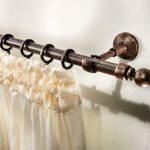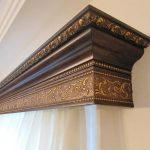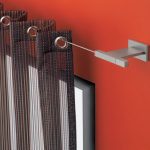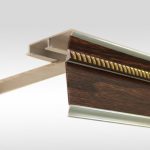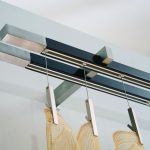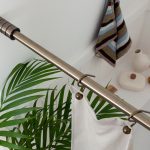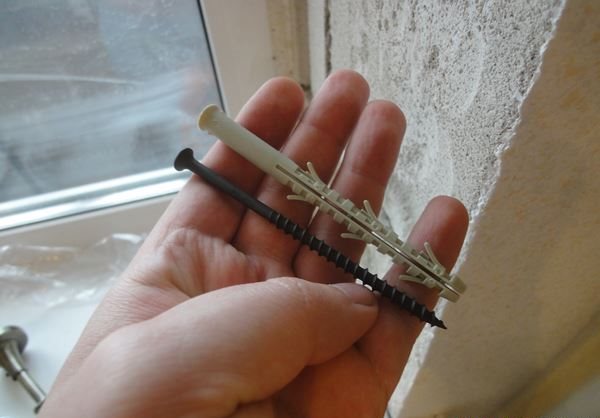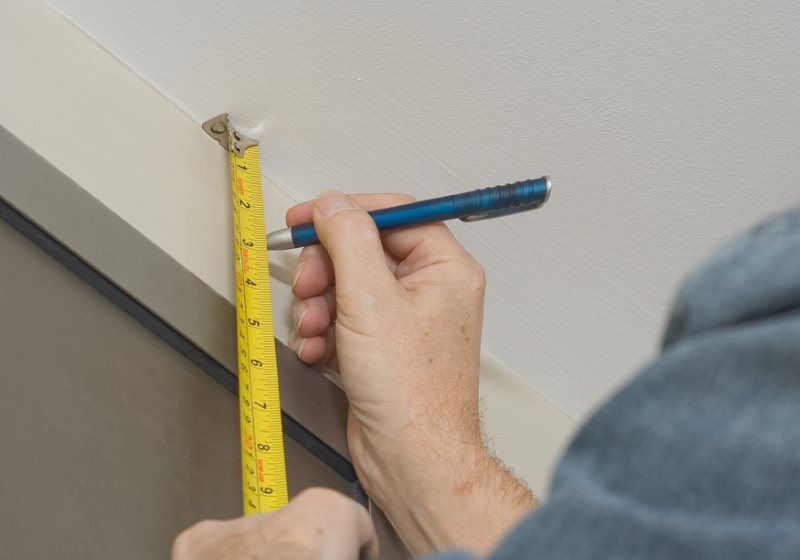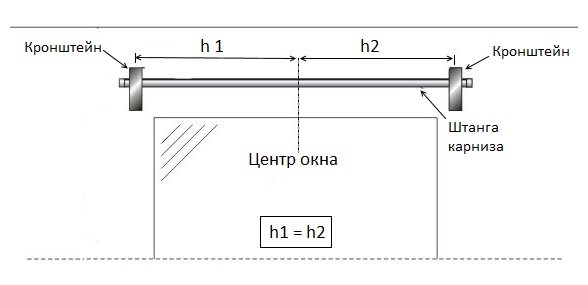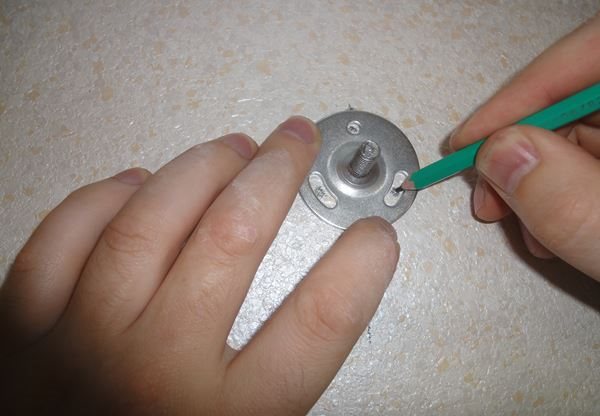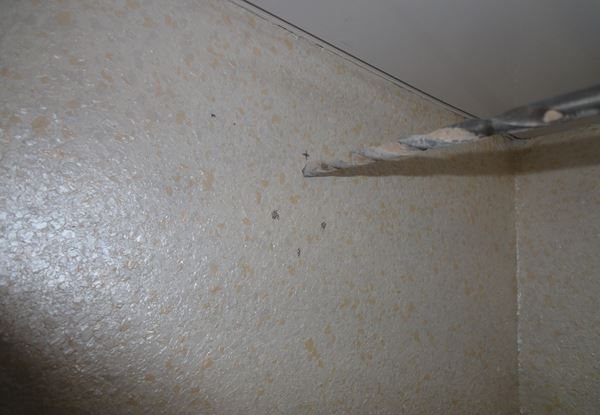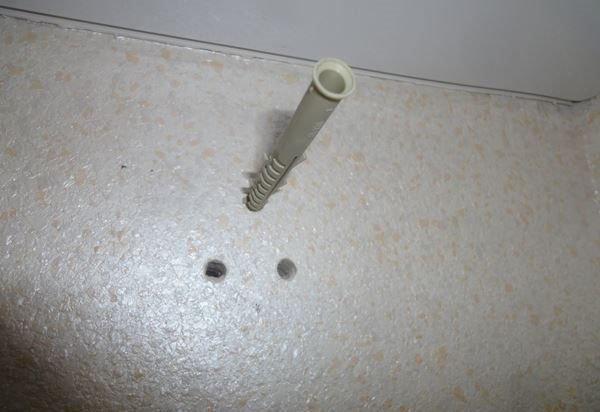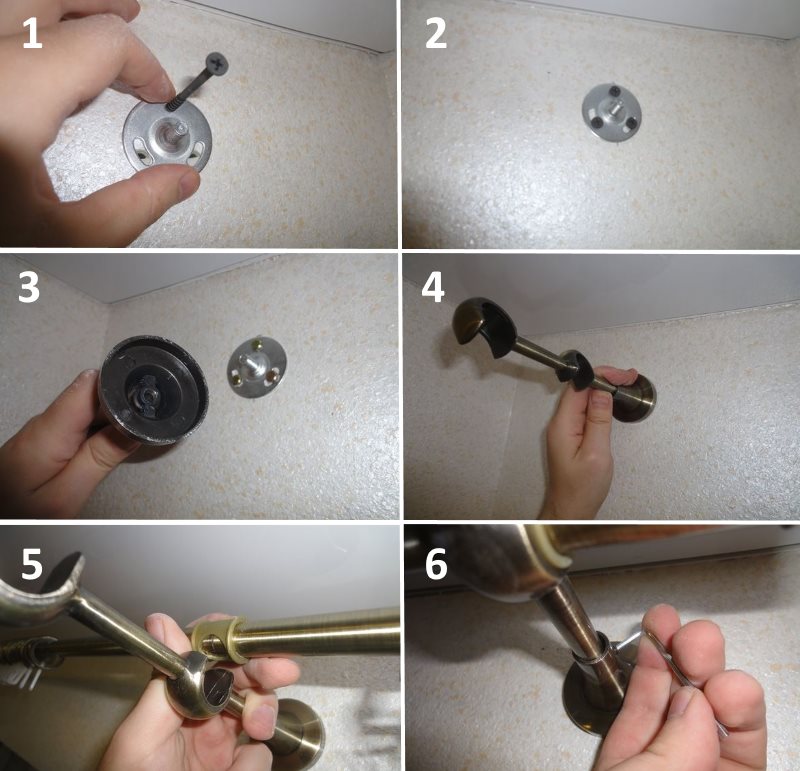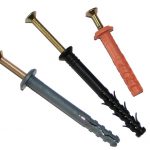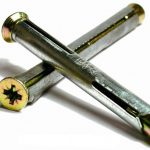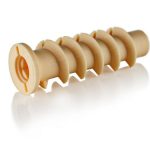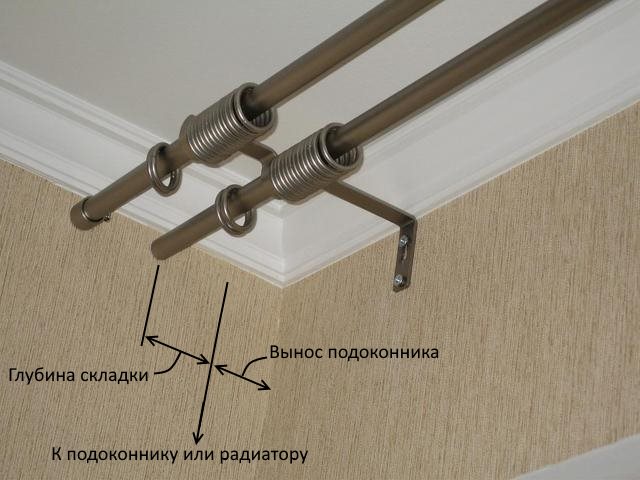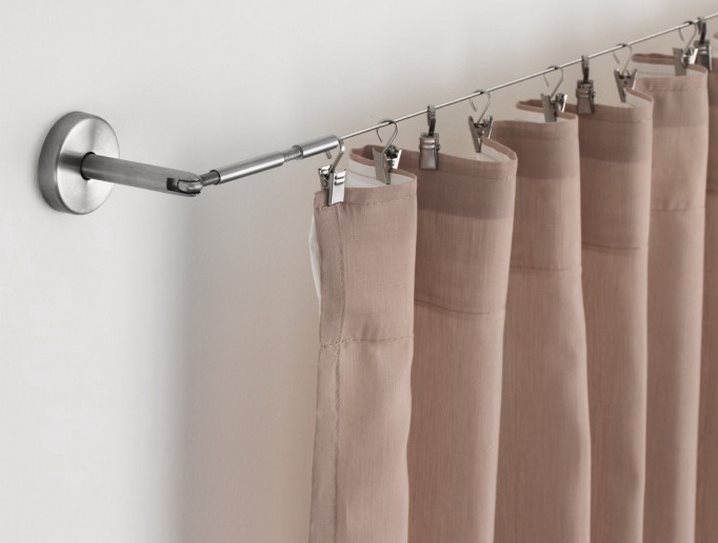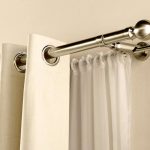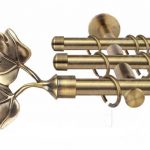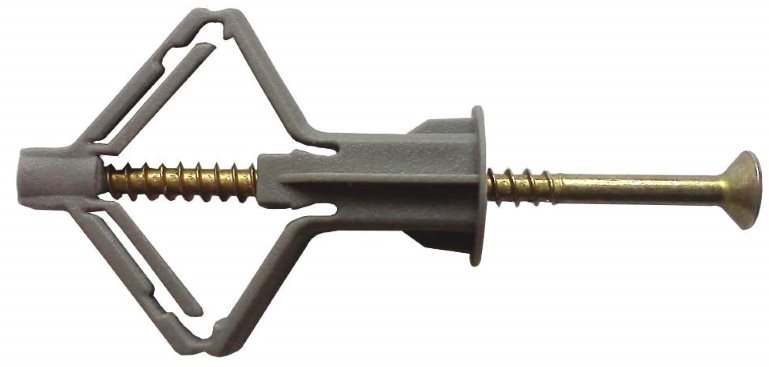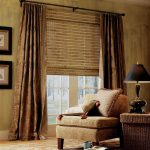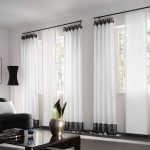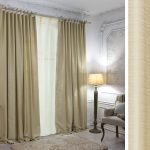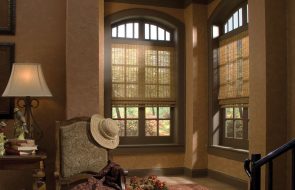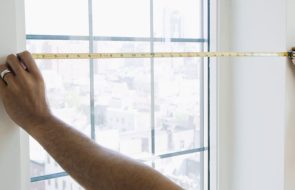Comfort in a living space is created by a harmonious selection of furniture, wall colors, beautiful curtains in window openings. Correctly selected curtains and cornices play a primary role in creating an interior.
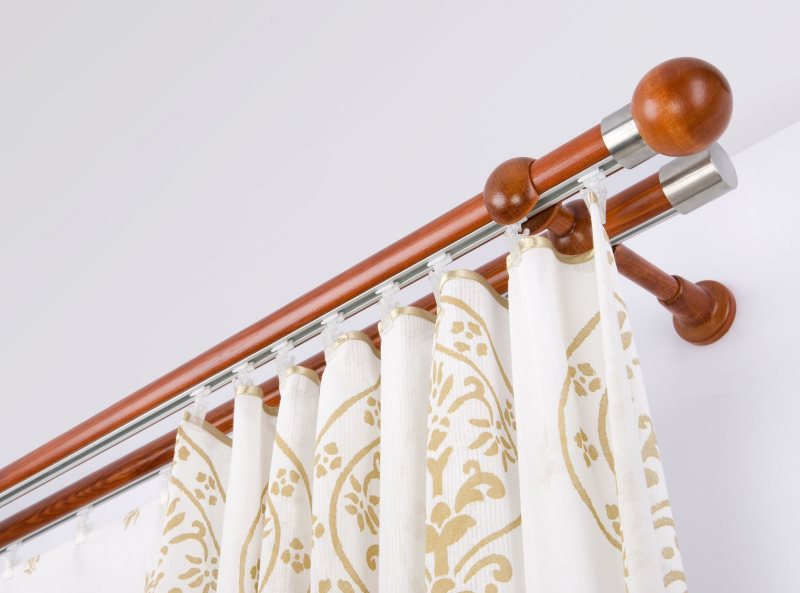
Curtains are curtains used to decorate windows (doors). Many modern designers use them because of their functional use. The design features of curtains are the weight and construction of the curtains, which are taken into account when choosing and attaching the cornice.
When deciding how to hang a curtain rod on a wall, you need to select the appropriate type of cornice for the interior of the room and the textiles of the curtains:
- round;
- baguette;
- string;
- profile;
- rail.
Curtains are attached in different ways: to the ceiling/to the wall. Stretch ceilings are in fashion now, so the most popular method is to install curtains on the wall.
Content
How to properly hang a curtain rod over a window?
Before hanging the curtain, prepare the tool and material:
- Ladder.
- Electric drill (hammer drill).
- Screwdriver.
- Roulette.
- Level.
- Screws.
- Dowels matching the screws.
First, the type of dowels is determined depending on the wall material, then screws are selected for them. - Pencil.
- Screwdriver.
- Hammer.
- Cornice with accessories.
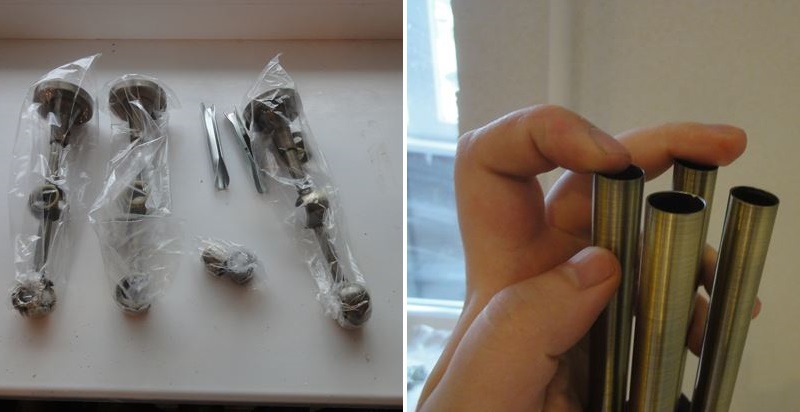
Please note! When choosing a cornice, it is worth considering that the recommended plank is 30-40 centimeters larger than the opening! Thanks to the projection, the curtain will not cover the window, which will allow daylight to penetrate.

If the necessary tool and consumables are available, a calculation is made and future holes for dowels are marked.
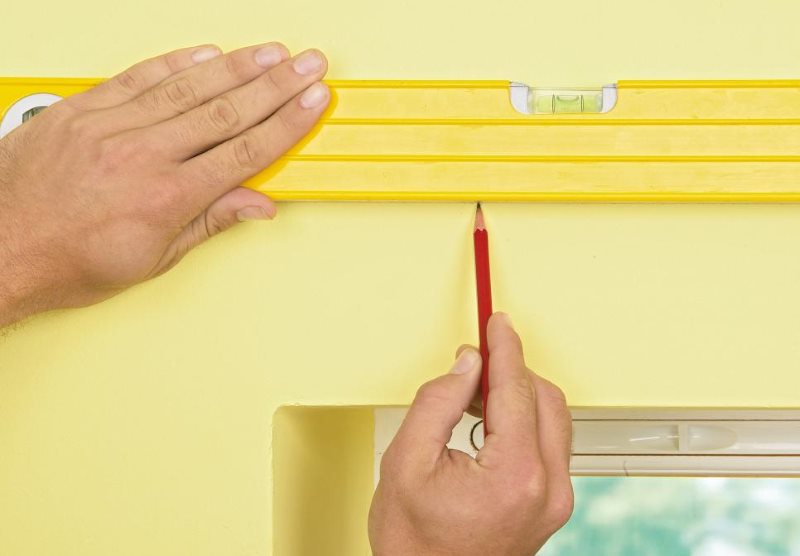
The curtains are attached in order, following strict step-by-step instructions:
- Before hanging the curtain, carefully study the room's electrical wiring plan. Familiarization with the wiring plan will help avoid unwanted errors when drilling the wall - the electrical cable will remain intact.
Important! When choosing the height, consider the placement of electrical wiring!
- The height of the bar fixation is determined. Professionals recommend placing it no lower than 10 cm from the ceiling - at the recommended distance, the curtains will look proportional.
The distance from the window opening to the cornice is selected individually - The center of the window is calculated and marked with a marker - the distance between the slopes is measured, the resulting number is divided by two.
Wall marking scheme for attaching a cornice - In different directions from the central bracket, the segments are measured to the outer brackets. The resulting number is recorded.
- From the central point marked on the wall, equal intervals are measured in both directions with a tape measure, and marks are made with a pencil.
Important! Measurements are taken from the ceiling, not from the horizontal line. Rooms often have uneven ceilings, so the strip should repeat the slope of the ceiling, visually leveling it.
- Fasteners are applied to the prepared marks and drilling locations are marked.
We mark the drilling points with a pencil - The holes are drilled using a drill or a hammer drill.
Carefully drill the holes - Plastic dowels are driven into the prepared holes using a hammer.
We remove dust from the holes and hammer in the dowels - The strip is applied so that the holes in the brackets coincide with the prepared dowels, and the screws are screwed in.
We fix the brackets and hang the curtain rod - Curtains are hung on the mounted crossbar.
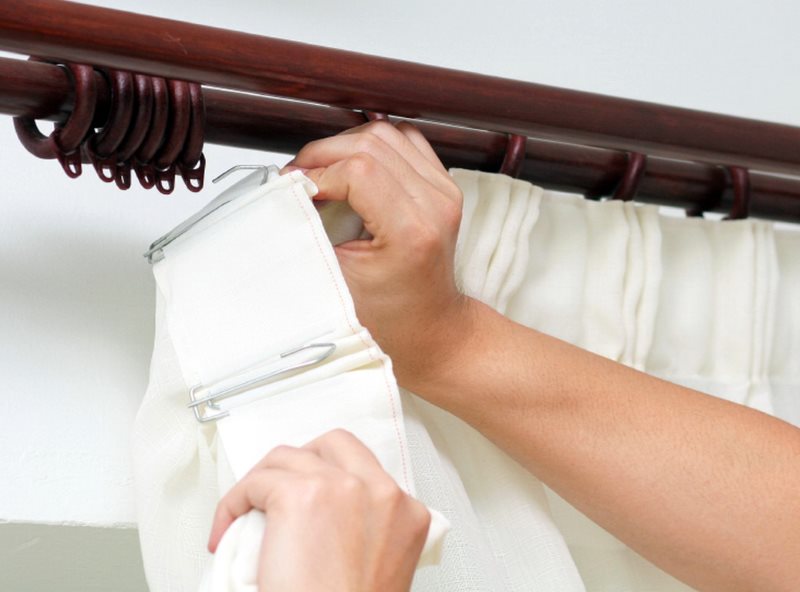
Before hanging the curtain rod on the wall, you need to call an assistant - it is more convenient to fix the bar together.
Requirements for installing curtains
When installing curtains, you must adhere to the following rules:
- Dowels (screws) are selected taking into account the wall material.
Plastic dowels for light loads Metal dowels for curtain rods with heavy curtains Special dowel for fastening in foam concrete - Before fixing, you need to make sure that the curtain will not interfere with the operation of the window - it will be easy to open (close). The recommended distance from the curtain to the window is at least five to seven centimeters.
- For partitions aligned with plasterboard, it is recommended to prepare longer screws. When drilling, you need to reach the brick to improve the reliability of the structure.
- Polyurethane dowels are used to securely fix the strip.
- If the wall has a loose structure, you will need large diameter wooden plugs where recesses are made for dowels.
- The screws are securely fixed into the thin, loose partition by filling the hole with epoxy resin.
- To prevent curtains from touching the radiator, they are hung at a distance of more than 10 cm.
The extension of the cornice from the wall is determined taking into account the protruding part of the window sill (or radiator) and the depth of the curtain folds.
The reliability of curtain installation depends on:
- material for making the cornice;
- design configurations;
- installation locations;
- finishing the surface where the curtains are attached.
Before you begin installing the structure, you need to pay attention to the following factors:
- Strength of the material (wood, string, plastic, metal). The cornices must withstand the weight of the curtains, and are selected accordingly to the weight of the textile.
For example, string curtain rods are designed to only hold light curtains. - Method of fixing to the wall. The total weight of the structure with curtains and the partition material are taken into account. There are 3 types of fastening: through through holes in the strip to the wall, on supports and on brackets.
- Size of the strip. It should extend beyond the side edges of the window opening.
- Number of tiers. This determines the choice of a single-row, double-row or triple-row system. This factor affects the width of the structure.
Single row cornice Double row cornice Three-row cornice - The cornices are hung after the renovation is completed.
The influence of curtain weight and design on proper installation
The weight and design of the curtains affect the installation of the device, so they must be taken into account when choosing curtain rods and curtains.
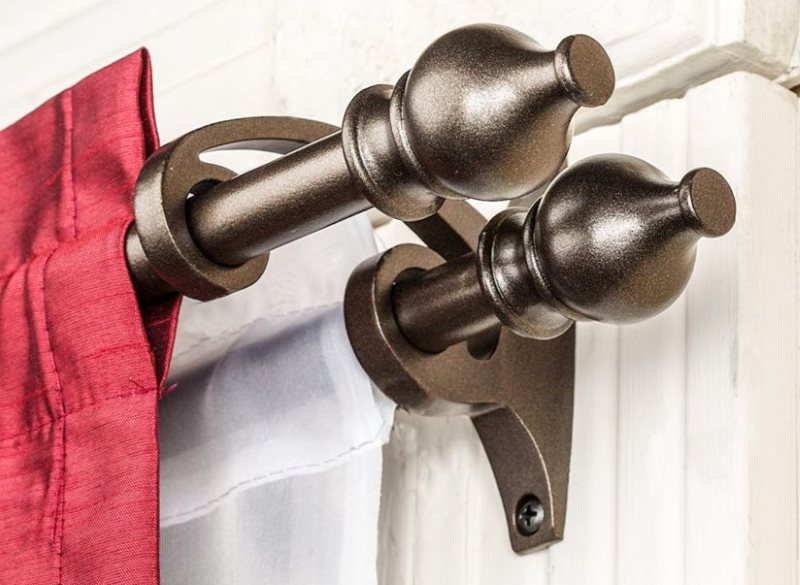
Professionals advise:
- If the wall is made of fragile material, then curtains are selected from simple, lightweight textiles.
- The supporting parts of the device will effectively fix dowels with a cross-section of 8 millimeters and screws.
- If the system is more than two meters, it is reinforced with auxiliary brackets, placing them taking into account the same load on the device.
- The correct installation of the curtain rod system should be able to withstand heavy curtains.
- For fastenings on a plasterboard wall, it is recommended to use a butterfly dowel, which “spreads its wings” in the hole and is securely fixed.
Plastic butterfly dowel for fixing light cornices on a plasterboard wall
Additional information! If the system is packed with rotating parts, their dimensions are taken into account when marking the fastening lines.
Examples and photos of correct installation of curtains
Correctly executed hanging of curtains helps to better perceive the interior. The provided photos confirm this.
Exquisite, laconic curtains in the living room perfectly match the design, profitably increasing the height of the window (door) opening.
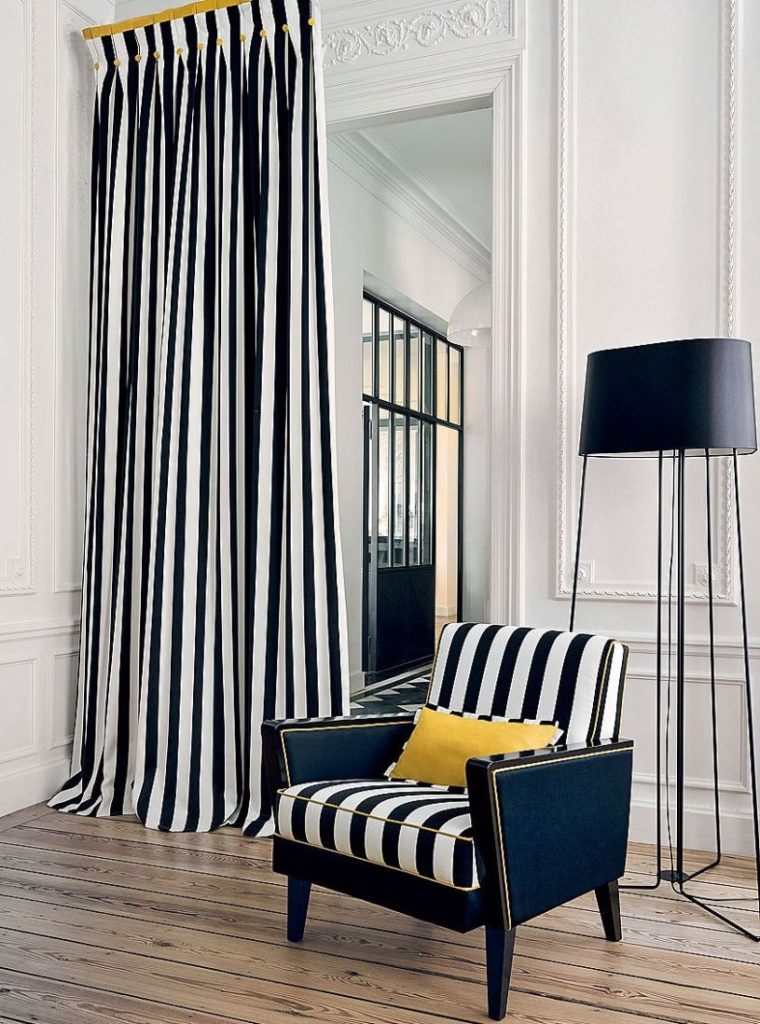
The kitchen will be decorated with curtains on a round system. A stylish curtain in combination with wood looks noble and elegant, matching classic kitchen furniture. Securely attached curtains will serve for a long time, decorating the opening.
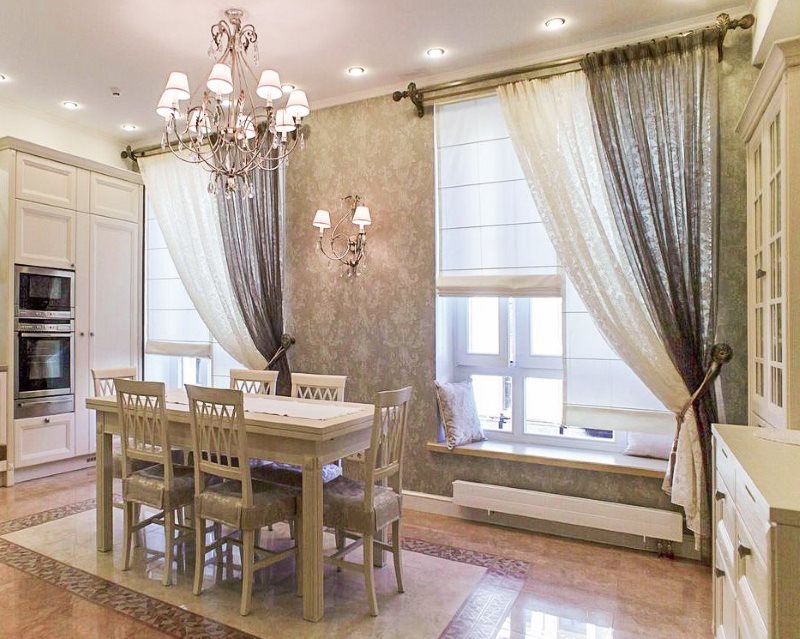
The following example demonstrates how to choose and hang a curtain rod on a bedroom wall. A metal structure is perfect for the Baroque style, giving the room an atmosphere of romance, wealth, and charm. Light, airy curtains fall, giving the room an exquisite nobility.
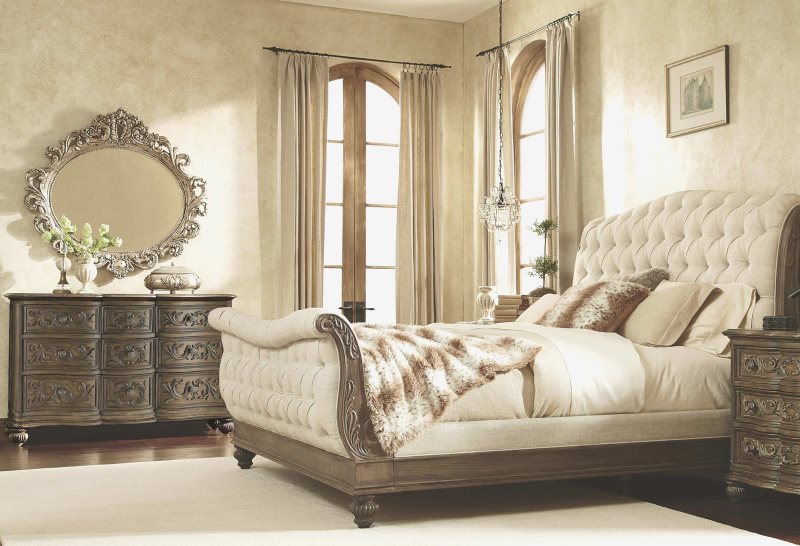
When choosing a curtain rod for a bedroom, it is recommended to consider:
- cornice size;
- apartment size;
- the shape of the window system.
The examples provided above confirm that a wisely selected system and its competent installation visually improve the perception of rooms and emphasize the originality of curtains.

